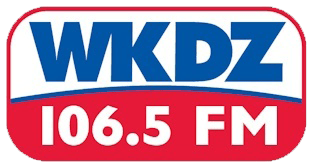
With Trigg County’s fleet of ambulances “the best it’s ever been,” Hospital CEO John Sumner noted in Thursday’s Board of Directors meeting he intends to keep it as such — by taking bids on the next one.
This falls in line from guidance he received in a Thursday morning Ambulance board meeting, one where officials told him supply chain issues were contributing to 18-month and two-year waits on new boxes.
At the moment, Sumner said the six available ambulances have great road resumes: zero miles, 16,000 miles, 25,000 miles, 115,000 miles, 140,000 miles and 187,000 miles. But the purpose is to not be caught unawares, and the two most used will be reaching end-of-life by the next 24 months.
The most-used ambulance has now become a “non-emergent” vehicle, typically used for patient transport or support/response.
In other hospital news:
— During financial discussions, Sumner noted the hospital campus requires at least $56,000 a day for stable operation. Over 365 days, that’s north of $20.4 million annually.
— In late January, hospital officials hosted a delegation from Concord Medical Group before going into executive session to discuss a three-year contract. Sumner noted Thursday that this ED physician’s commitment begins May 16.
— It’s in really early discussions, but Sumner said discussions nonetheless are ongoing with the potential hiring of Evansville pulmonologist Dr. Jeffrey Wayne Selby. A specialist of internal medicine and pulmonary diseases, he and a nurse practitioner would be available, at some point, in Suite A to offer heart health options. A graduate of Indiana University School of Medicine in 1977, he’s currently affiliated with St. Vincent’s Medical Center, Methodist Hospital and Deaconess Gateway Hospital.
— The board unanimously approved a two-part measure that included the purchase of a new Moses Laser 2.0, a four-year maintenance contract for it, and a three-year maintenance contract renewal on the current Laser 1.0 on campus. All told: roughly $250,000.
Sumner noted the hospital’s No. 1 surgery comes from this laser, with its 2.0 version able to treat ablations, prostate cancer, larger stones and other key urology measures with speed and ease.






